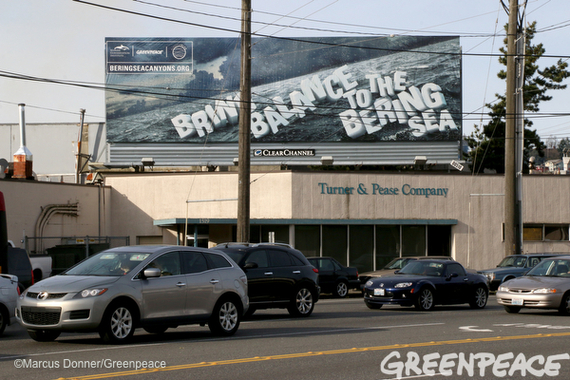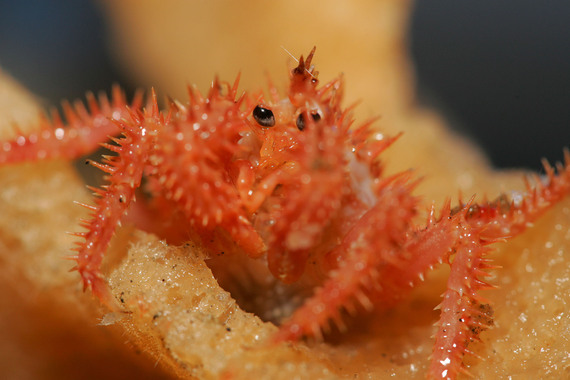
Healthy oceans are the life support system for our planet, providing 97% of the Earth's livable habitat and a home to more than 700,000 species. The oceans are inseparably linked to our health as well, providing half the oxygen we breathe, relaxation and enjoyment, jobs, and food to billions of people.
Unfortunately, the oceans are in trouble. Seas we once thought too vast to be permanently/significantly altered by humans now face mass extinctions. Globally, the effects of industrialization are threatening the oceans' ability to continue sustaining the ecosystems we depend upon. Climate change and ocean acidification, both the result of our reliance on fossil fuels like coal and oil, are impacting the ocean to an extent not experienced in hundreds of millions of years. Scientists tell us we are on a trajectory toward ecological disaster in many ocean areas and the collapse of major fisheries across the globe.
Fish are more than seafood. Fish are wildlife first, and they are critical components of complex marine ecosystems and food webs. Understanding the life-support that society receives from healthy oceans, and the tremendous impact that commercial fishing has on the ocean - we know that some of the ocean must remain unfished.
Despite overwhelming science and support for the idea that we should leave some of our seascape untouched, we have not seen the ambition and progress needed from policymakers. In some of our most valuable marine ecosystems such as the Bering Sea, the decisions on how we manage ocean resources are being made by the North Pacific Fishery Management Council, made up primarily of representatives of the fishing industry, and they are influenced by a powerful lobby that seeks to maintain the status quo. 
For this reason, Greenpeace has teamed up with Sylvia Earle's Mission Blue and Marine Conservation Institute to launch a 2020 Vision, encouraging individuals and seafood companies alike to commit to a healthy ocean future. We need to find the ambition to protect important ocean places. We are challenging the US to double the amount of strongly protected marine areas over the next five years, to set aside 20 percent of our waters by 2020.
This 2020 Vision recently launched in Seattle - home to much of Alaska's fishing fleet - with billboards and posters urging supermarkets such as Target and Albertsons to restore balance to the Bering Sea, and an editorial in The Seattle Times. By balance, we mean policies that prioritize the protection of ocean resources, rather than solely managing our continued taking of marine life. Balance means setting aside important ocean areas as an insurance policy for the future and a buffer against uncertainty. It means giving the ocean a fighting chance to restore health and biodiversity. Even in the Bering Sea, where we have the best science available, there is tremendous uncertainty in fisheries management. We have no baselines or control areas, no unfished places to compare to the waters that have been heavily fished for decades.
To give our oceans the best chance of remaining resilient, we need networks of protected areas in the places where the ocean is most alive - places like the Bering Sea canyons. Unfortunately, decision makers have failed to curb the largest industrial fishery in the world to protect these Grand Canyons of the sea, despite a dozen years of urging by conservation groups and more than 200,000 concerned members of the public. Letters urging protection for the canyons have come from tribal organizations and even some of our nation's largest supermarket chains. Costco is the latest to weigh in, sending a letter to the Council "to convey its interest in ensuring that the marine ecosystem of Zhemchug and Pribilof canyons in the Bering Sea are effectively protected from the effects of commercial fishing activities."
It is time to hold the industries accountable that extract our marine life, depleting and damaging entire ecosystems. We need more leadership from seafood buyers, including the supermarkets that sell marine life every single day. It's common sense that these companies would want to see oceans protected and healthy long term, as well. It's a sustainable business model if nothing else. When the companies that profit from the sale of our marine resources join us to call for more balance in the oceans - the creation of effective no-take reserves and other protective measures that reduce fishing's destructive impacts - we know true progress will be made.
Want to protect our seas? Add your name to the call to double the amount of US areas protected by 2020.